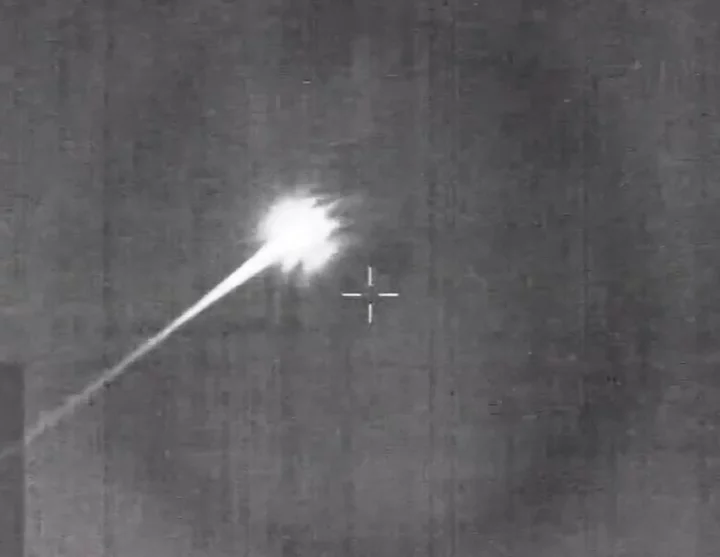A piece of asteroid has arrived on Earth from the other side of the solar system, in a major success for Nasa’s Osiris-Rex mission.
The spacecraft has spent years flying to Asteroid Bennu, gathering up a piece of it, and bringing it back home so that it can be studied by researchers. It brings an end to a mission that took seven years, saw it travel 4 billion miles, and cost more than a billion dollars.
Scientists hope that study can help reveal how planets formed and evolved, and might shed light on how life itself began. Since Bennu is around 4.5 billion years old, the sample is almost like a look back into the solar system during its early years and Nasa has referred to it as a “time capsule”.
Asteroid Bennu is also notable as Nasa’s “most dangerous asteroid”, according to a scale used to measure how much of a hazard a given object poses.
It is the first time that Nasa has brought back a piece of an asteroid, and the first time since 2020. It is also the biggest ever to be gathered, at around 250 grams.
Nasa sent a team on board helicopters to gather the sample canister, extracting it to ensure that it did not become contaminated by the environment. Since the sample was directly from the asteroid, it will not have any trace of material from the Earth on it, unlike those that fall to Earth.
That sample will be distributed between 200 people at 38 institutions across the world, including those in the UK.
The Osiris-Rex mission left Earth in September 2016, and arrived at the asteroid in October 2018. It gathered samples in October 2020, and then left the asteroid in April 2021.
Since then, both the sample and the spacecraft have been returning back from the other side of the solar system to Earth. The spacecraft then dropped off the sample to return home, while Osiris-Rex will carry on to study another asteroid called Apophis, where it will arrive in 2029.
Apophis is also notable for its danger: at times, it has challenged Bennu at the top of the league table of most dangerous objects. But recent research has suggested that Apophis poses less of a danger.
Ashley King, UKRI future leaders fellow, Natural History Museum, said: “Osiris-Rex spent over two years studying asteroid Bennu, finding evidence for organics and minerals chemically altered by water.
“These are crucial ingredients for understanding the formation of planets like Earth, so we’re delighted to be among the first researchers to study samples returned from Bennu.
‘We think the Bennu samples might be similar in composition to the recent Winchcombe meteorite fall, but largely uncontaminated by the terrestrial environment and even more pristine.”
Dr Sarah Crowther, research fellow in the Department of Earth and Environmental Sciences at the University of Manchester, said: “It is a real honour to be selected to be part of the Osiris-Rex sample analysis team, working with some of the best scientists around the world.
“We’re excited to receive samples in the coming weeks and months, and to begin analysing them and see what secrets asteroid Bennu holds.
“A lot of our research focuses on meteorites and we can learn a lot about the history of the solar system from them.
“Meteorites get hot coming through Earth’s atmosphere and can sit on Earth for many years before they are found, so the local environment and weather can alter or even erase important information about their composition and history.
“Sample return missions like Osiris-Rex are vitally important because the returned samples are pristine, we know exactly w
Read MorePieces of a distant asteroid are about to fall to Earth
Nasa to return largest asteroid sample ever as UK helps with research
Astronomers find abundance of Milky Way-like galaxies in early universe
Pieces of a distant asteroid are about to fall to Earth
Nasa to return largest asteroid sample ever as UK helps with research
Astronomers find abundance of Milky Way-like galaxies in early universe









